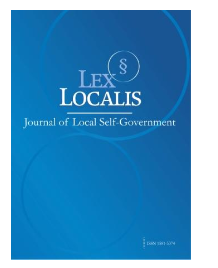A REVIEW OF ARTISANAL EXTRACTION STRATEGIES IN LAKES FOR THE OPTIMIZATION OF SUSTAINABLE FISH PRODUCTION AND MARKETING
DOI:
https://doi.org/10.52152/801716Ključne besede:
Artisanal fisheries; lake ecosystems; integrated multi-trophic aquaculture; fishery management; food securityPovzetek
Artisanal extractive capacity in lakes represents a key factor to improve the sustainable production and commercialization of fish, which corresponds to a vital resource for rural communities and aquatic ecosystems. This study conducted a systematic review following the PRISMA protocol, where 24 articles obtained from three high impact databases (Scopus, Web of Science and ScienceDirect) were analyzed to synthesize the environmental, sanitary and socioeconomic management strategies applied in artisanal lake extraction systems. The results show as findings that Integrated Multitrophic Aquaculture (IMTA) significantly improves water quality and fish production by co-culture of fish with extractive species such as bivalves and macroalgae, and that regulated fisheries management and adequate pond management techniques contribute to substantial increases in fish production and quality (size, taste, reproducibility). However, poor sanitation practices and inadequate hygienic conditions pose risks to food safety and public health. Economic and social factors that condition the profitability and sustainability of artisanal fisheries were also identified. The integration of robust ecological, sanitary and socioeconomic practices is essential to optimize artisanal extractive capacity in lakes, ensuring environmental sustainability and economic viability. Future studies are recommended to deepen longitudinal and multidisciplinary assessments to strengthen the sustainable management of these ecosystems.
Prenosi
Objavljeno
Številka
Rubrika
Licenca
Avtorske pravice (c) 2025 Lex localis - Journal of Local Self-Government

To delo je licencirano pod Creative Commons Priznanje avtorstva-Nekomercialno-Brez predelav 4.0 mednarodno licenco.








